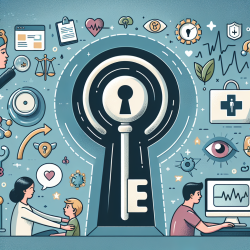Unlocking the Benefits of Extended School Year Services in Idaho
As a Special Education Director, I understand the myriad of challenges faced by parents of students with disabilities. One such challenge is ensuring that your child continues to progress academically and socially even during school breaks. This is where Extended School Year (ESY) services come into play. But what exactly are ESY services, and how can they benefit your child? Let's delve into the specifics of ESY services in Idaho and why they might be a game-changer for your child's educational journey.
What Are Extended School Year Services?
Extended School Year services are special education and/or related services provided beyond the regular school year. These services are tailored to the individual needs of students with disabilities and are outlined in their Individualized Education Program (IEP). The primary goal of ESY services is to assist students in maintaining and emerging specific IEP goals, such as independence, behavior, socialization, communication, and academics.
Criteria for ESY Services
Determining the need for ESY services involves a comprehensive evaluation of the student's circumstances. Here are the three key criteria considered:
- Emerging Skill: If a skill is in the process of emerging, and the IEP team believes that ESY services would help the student make reasonable gains.
- Regression-Recoupment: If the student is likely to experience significant regression without ESY services, making it difficult to relearn skills or behaviors.
- Self-Sufficiency: If a break in services would threaten the acquisition of critical life skills necessary for the student's independence.
Evidence to Support ESY Services
Decisions regarding ESY services are based on data and documentation. The types of evidence considered include:
- Criterion-referenced and norm-referenced test data
- Anecdotal records and observations
- Health factors and historical data
- Teacher interviews and parent input
IEP Development for ESY Services
The ESY services must be clearly described in the student's IEP. This can be done by amending the current IEP or developing a separate ESY IEP. It's important to note that the services are based on the student's individual needs and not on the programs readily available within the Local Education Agency (LEA).
Limitations and Considerations
While ESY services offer significant benefits, there are limitations to consider:
- ESY services are not meant for convenience or as a substitute for daycare.
- They are not required to maximize educational opportunities but to maintain critical skills.
- ESY services are not summer recreation programs.
Program Models and Staffing
ESY services can be delivered through various program models, such as:
- Home-based programs with parent training
- School-based or cooperative programs with other agencies
- Contracting with external agencies for services
Staffing for ESY programs can include local certificated staff, supervised university practicum students, or contracted services with agencies.
Conclusion
ESY services are a vital component of special education, ensuring that students with disabilities do not lose critical skills during school breaks. By understanding and leveraging these services, parents can provide their children with the support they need to thrive. For more detailed information, please follow this link.










